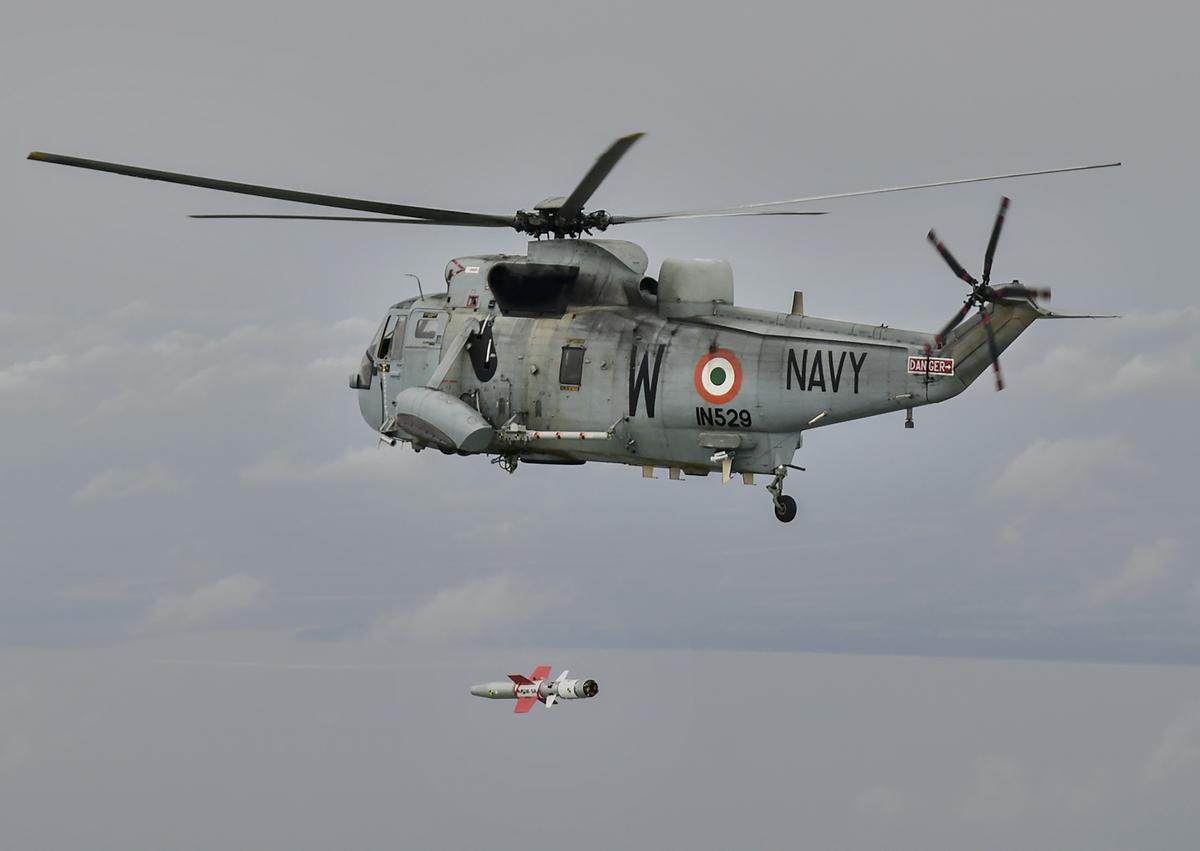The Indian Navy carried out the test in association with the Defence Research and Development Organisation. An indigenously developed Helicopter-Launched Naval Anti-ship Missile was successfully test-fired for the first time from a naval helicopter at Integrated Test Range (ITR), Chandipur off Odisha coast on May 18. It is the first indigenous air-launched anti-ship missile system for the Indian Navy. The missile followed the desired sea skimming trajectory and reached the designated target with high degree of accuracy, validating the control, guidance and mission algorithms.
Secretary Department of Defence Research and Development (R&D) and Chairman Defence Research and Development Organisation (DRDO) Dr G Satheesh Reddy appreciated the efforts of the project team. He complimented the Indian Navy and Naval Flight Test Squadron for their support to the project and said that the system will strengthen offensive capability of Indian Navy. The Indian Navy has been steadily enhancing its overall combat capability to effectively protect India’s maritime security interests, particularly in the Indian Ocean region.
The test was carried out from a Seaking-42B helicopter. The missile employed many new technologies, including an indigenously developed launcher for the helicopter, and the missile guidance system includes a state-of-the-art navigation system and integrated avionics. The mission met all its objectives. All the sub-systems performed satisfactorily and the sensors deployed across the test range and near impact point tracked the missile trajectory and captured all the events. India has attained a high level of capability in indigenous design and development of missile systems.
The Defence Research and Development Organisation (DRDO) (IAST: Raks? An?sandh?n Evam Vik?s Sanga?han) is the premier agency under the Department of Defence Research and Development in Ministry of Defence of the Government of India, charged with the military’s research and development, headquartered in Delhi, India. It was formed in 1958 by the merger of the Technical Development Establishment and the Directorate of Technical Development and Production of the Indian Ordnance Factories with the Defence Science Organisation. With a network of 52 laboratories, which are engaged in developing defence technologies, covering various fields, like aeronautics, armaments, electronics, land combat engineering, life sciences, materials, missiles, and naval systems.
"Don't take rest after your 1st victory because if you fail in 2nd, more lips are waiting to say that your 1st victory was just Luck"
Dr APJ Abdul Kalam (2/2)#HarKaamDeshKeNaam@IN_HQSNC@IN_WNC
@INEasternNaval1 pic.twitter.com/J1jAp3WEPR— PRO Defence Kochi (@DefencePROkochi) May 18, 2022















